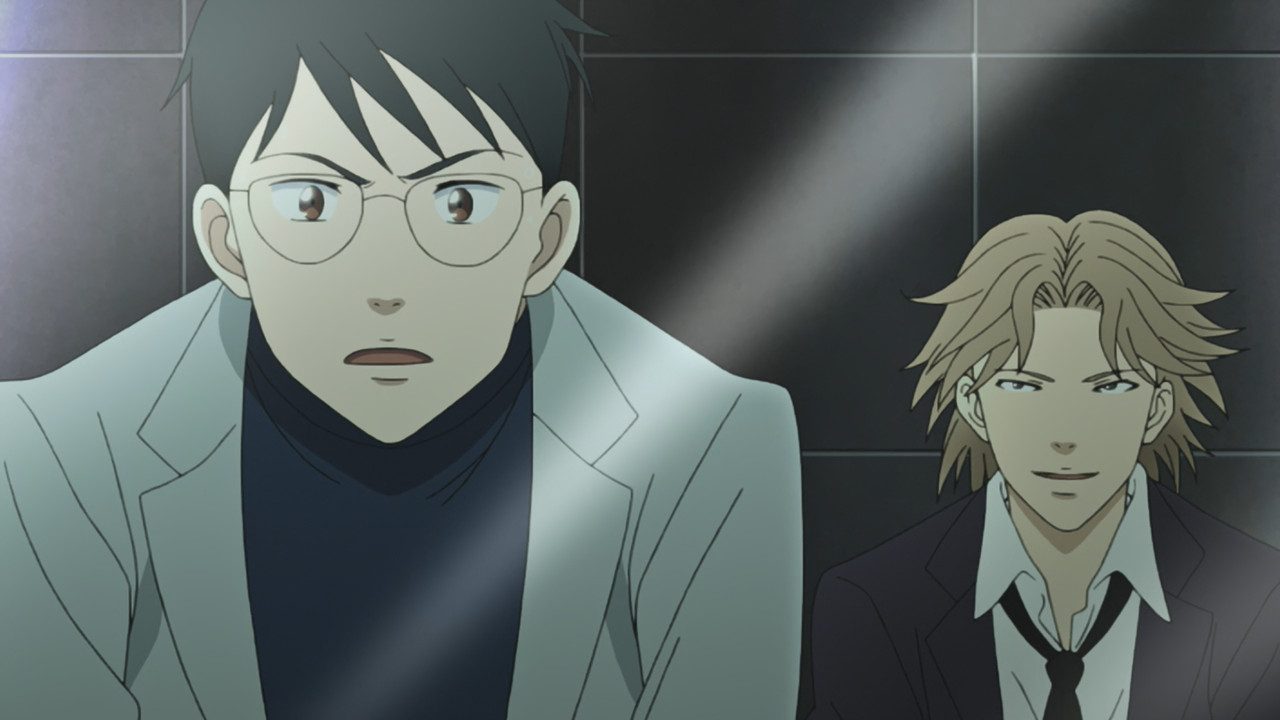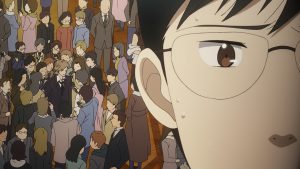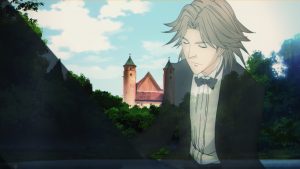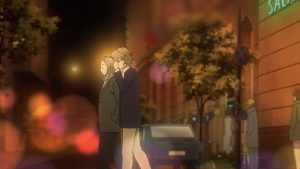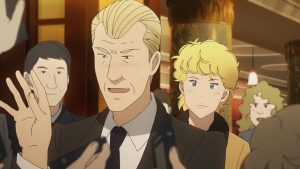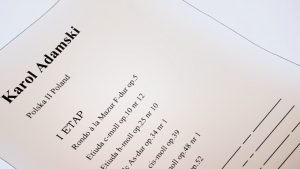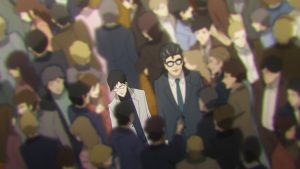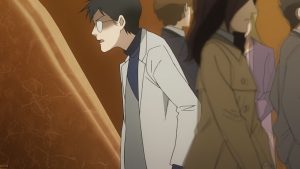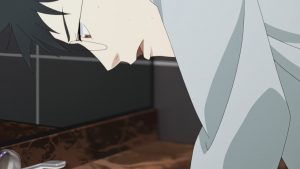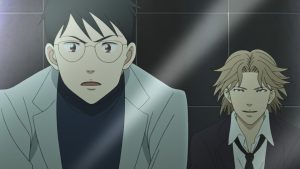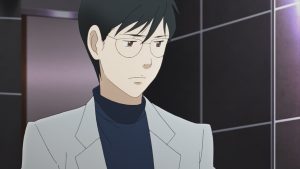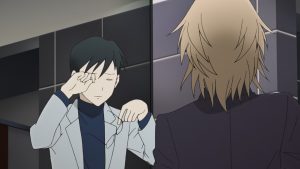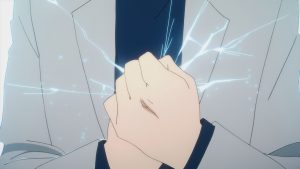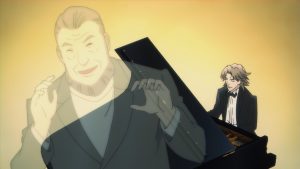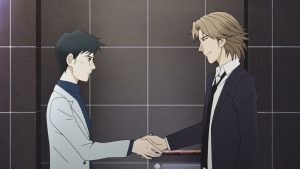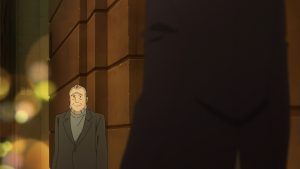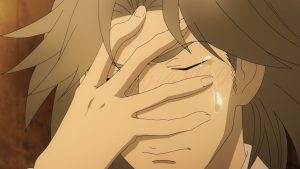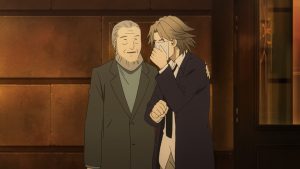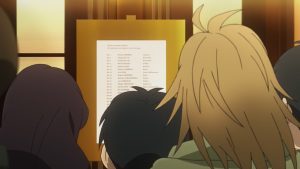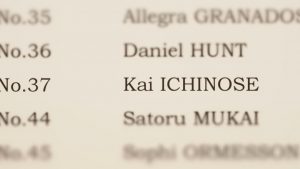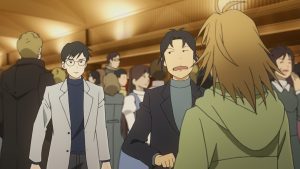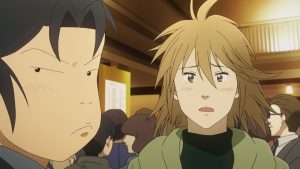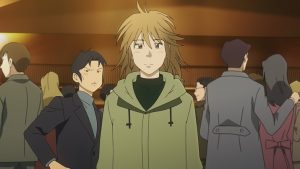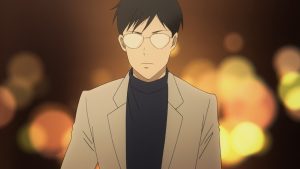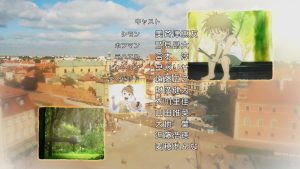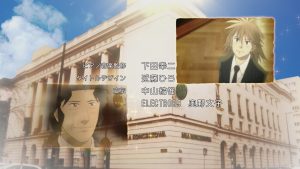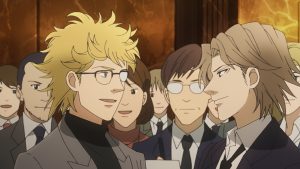 So begins another season of Piano no Mori, and likely another season of irregular releases (for which I’m extremely grateful whenever they arrive, let me be clear). Theoretically this is a Sunday show which means I should be blogging it Monday my time (which would be great, since I have no other series on that day this season) but in practice that’s not likely to be realistic with the wait for subs. “Wait, Enzo!” I hear you saying – “Isn’t this Monday?” Yes, but this is last week’s episode – and this is the first chance I’ve had to tackle it.
So begins another season of Piano no Mori, and likely another season of irregular releases (for which I’m extremely grateful whenever they arrive, let me be clear). Theoretically this is a Sunday show which means I should be blogging it Monday my time (which would be great, since I have no other series on that day this season) but in practice that’s not likely to be realistic with the wait for subs. “Wait, Enzo!” I hear you saying – “Isn’t this Monday?” Yes, but this is last week’s episode – and this is the first chance I’ve had to tackle it.
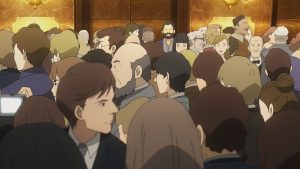 All in all I’d have to say this was a fairly impressive start to the new season, if a pretty unconventional one. There are a couple of qualifiers with Piano no Mori, one of them quite straightforward and the other much more nuanced and ultimately, for me more problematic. The former (I’ll get to the latter shortly) is the production values, which are generally pretty low. This series actually changed studios while being produced in the same place – technically anyway, since Fukushima Gainax spun off formally and changed their name to “Gaina”. This isn’t a deal-breaker for me, because the series does get the critical performance element right musically if not visually, and it actually makes up to an extent for cheapness with some nice artistic touches (like the new ED sequence).
All in all I’d have to say this was a fairly impressive start to the new season, if a pretty unconventional one. There are a couple of qualifiers with Piano no Mori, one of them quite straightforward and the other much more nuanced and ultimately, for me more problematic. The former (I’ll get to the latter shortly) is the production values, which are generally pretty low. This series actually changed studios while being produced in the same place – technically anyway, since Fukushima Gainax spun off formally and changed their name to “Gaina”. This isn’t a deal-breaker for me, because the series does get the critical performance element right musically if not visually, and it actually makes up to an extent for cheapness with some nice artistic touches (like the new ED sequence).
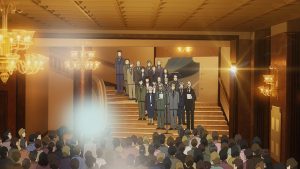 What’s interesting about this episode as a premiere – and I suppose symptomatic of the fact that this is a split-cour rather than a true sequel, and that the stopping point was pretty arbitrary – is that is spends little time focused on the theoretical protagonist. The two characters in the spotlight are Shuu and the Polish starlet Karol Adamski, who we met late last season. And I have to say that works a treat, because both their storylines are interesting and raise some interesting issues about performing classical music (especially in competition).
What’s interesting about this episode as a premiere – and I suppose symptomatic of the fact that this is a split-cour rather than a true sequel, and that the stopping point was pretty arbitrary – is that is spends little time focused on the theoretical protagonist. The two characters in the spotlight are Shuu and the Polish starlet Karol Adamski, who we met late last season. And I have to say that works a treat, because both their storylines are interesting and raise some interesting issues about performing classical music (especially in competition).
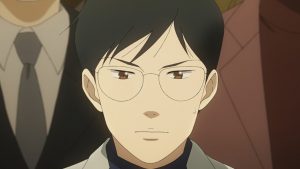 The key moment of the episode comes when Adamski is – shockingly – not voted into the final 30 by the Chopin Competition’s judges. The wags in the local press gave their own theories on this – corruption, spite over the fact that Adamski dropped his beloved teacher and is “self-made”, jealousy over the fact that he’s a star. As for the judges it seems clear there are elements of all those reasons, but the justification they give is that his performance strayed too far off the original score – too many theatrical flourishes. Frankly, pianists who receive too much commercial acclaim are generally ill-regarded by the “serious” competition community. And to be blunt, there’s often good reason for that. As to whether Adamski got screwed here or not, it’s kind of tough to say. It is valid to note, though, that the standards for competition are different than those of concert performance.
The key moment of the episode comes when Adamski is – shockingly – not voted into the final 30 by the Chopin Competition’s judges. The wags in the local press gave their own theories on this – corruption, spite over the fact that Adamski dropped his beloved teacher and is “self-made”, jealousy over the fact that he’s a star. As for the judges it seems clear there are elements of all those reasons, but the justification they give is that his performance strayed too far off the original score – too many theatrical flourishes. Frankly, pianists who receive too much commercial acclaim are generally ill-regarded by the “serious” competition community. And to be blunt, there’s often good reason for that. As to whether Adamski got screwed here or not, it’s kind of tough to say. It is valid to note, though, that the standards for competition are different than those of concert performance.
 As for Shuu, while he certainly qualifies (as well he should), it’s been pretty obvious for a while that he’s on the edge of a nervous breakdown. The furor over Adamski’s slight is enough to set him reeling, and he again flees to the men’s room – which seems to be his fated place for trysts with Adamski. Despite their situations it’s Adamski who ends up counseling Shuu (which Shuu later feels guilty about). Maybe this helps Adamski forget his own pain for the moment, but his advice – while blunt – is pretty on-point. If Shuu thinks he’s special because he works hard he’s hanging with the wrong crowd. But to tell Shuu the key is to find a way to insert his self into this music is one thing – for Shuu to do it quite another. The poor lad is obviously quite lost at the moment, despite his surviving the first cut.
As for Shuu, while he certainly qualifies (as well he should), it’s been pretty obvious for a while that he’s on the edge of a nervous breakdown. The furor over Adamski’s slight is enough to set him reeling, and he again flees to the men’s room – which seems to be his fated place for trysts with Adamski. Despite their situations it’s Adamski who ends up counseling Shuu (which Shuu later feels guilty about). Maybe this helps Adamski forget his own pain for the moment, but his advice – while blunt – is pretty on-point. If Shuu thinks he’s special because he works hard he’s hanging with the wrong crowd. But to tell Shuu the key is to find a way to insert his self into this music is one thing – for Shuu to do it quite another. The poor lad is obviously quite lost at the moment, despite his surviving the first cut.
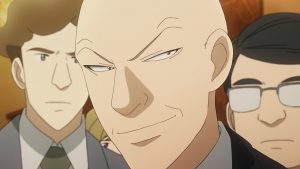 And now we get to that “latter” issue with Piano no Mori, and one that I fear is ultimately going to be its undoing for me. The fact is that Shuu is simply a much more interesting character than Kai and, more to the point, his arc is much more interesting. To an extent this is the same problem I have with Chihayafuru vis a vis Taichi and Arata, right down to the fact that the series obviously favors the one and even to the extent that the mangaka writes that character as if they’re in love with him. Simply put Piano no Mori has the wrong hero, and when it delivers the ending it almost surely will I can’t imagine it’s not going to feel hollow for me. We’ll see of course, I could be wrong – but the one thing I know for sure is that the less predictable this second cour is, the more I’m likely to buy into it.
And now we get to that “latter” issue with Piano no Mori, and one that I fear is ultimately going to be its undoing for me. The fact is that Shuu is simply a much more interesting character than Kai and, more to the point, his arc is much more interesting. To an extent this is the same problem I have with Chihayafuru vis a vis Taichi and Arata, right down to the fact that the series obviously favors the one and even to the extent that the mangaka writes that character as if they’re in love with him. Simply put Piano no Mori has the wrong hero, and when it delivers the ending it almost surely will I can’t imagine it’s not going to feel hollow for me. We’ll see of course, I could be wrong – but the one thing I know for sure is that the less predictable this second cour is, the more I’m likely to buy into it.
“Hajimari no Basho (はじまりの場所)” by Rie Murakawa


